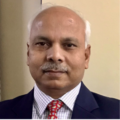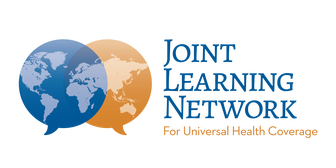Home > What We Do > Service Delivery & Quality, including PHC > Private Sector Investment and Contract Management
Private Sector Investment and Contract Management
About the Learning Exchange – This activity has concluded
JLN member countries are increasingly active in seeking to harness private sector capacity and capital to enhance their universal healthcare services. Specific reforms range from contracting private providers to provide subsidized health services, creating level regulatory playing fields between public and private providers, stimulating new private investment into areas of low provision, and seeking to align increasingly fragmented systems of public and private healthcare towards a unified provider landscape.
This virtual learning exchange is split into two work streams: investment and contract management. The contracting work stream seeks to answer how public payers can better monitor, manage, and enforce contracts for subsidized healthcare services with private providers.
The investment work stream seeks to answer how governments can unlock private capital to catalyze their UHC reform agenda. The focus will be on building understanding of mechanisms by which private capital can be harnessed to achieve governments’ UHC goals, including financing models, market shaping levers and global lessons from real-world examples of success and failure.
The overall goal of this Virtual Learning Exchange is to gather a group of peers from across JLN member countries and equip them with the knowledge, confidence, and skills to form more, more ambitious, and more successful partnerships between public healthcare payers and private healthcare providers and investors.
Technical Facilitators
Jonty Roland, Associate Director, Aceso Global. Jonty Roland is an independent adviser on health system reform and universal health coverage to governments, global institutions and private sector organizations. He has worked in more than 25 countries in areas including health system reform, health financing and frugal innovation. His primary interest is the design, implementation and refinement of national health insurance schemes (NHIs)—having worked on the public side on the implementation of NHIs in six countries, and on the private side supporting for-profit providers and investors working on UHC-related opportunities in a further ten countries. He has published extensively on the topic of public-private collaborations for the achievement of UHC. Jonty has led multiple recent initiatives of the JLN, including the Learning Collaborative on Population Targeting, Virtual Learning Exchange on Patient Pathways, and related Communities of Practice to support implementation. He has a Masters in Management Studies from the University of Cambridge, and an MSc in Public Health from the London School of Hygiene and Tropical Medicine.
Anuschka Coovadia, Founder and Partner, Usizo Advisory. Dr. Coovadia is an independent advisor on universal healthcare to a wide range of public and private clients, with extensive experience working in health systems across the African continent and beyond. She was the Head of Healthcare and Life Sciences for Africa at KPMG for 5 years, during which time she led 23 projects related to achieving UHC across Africa, Asia, and the Middle East. Other relevant experiences include being Executive Director for the private equity investment fund Ayurveda Investments, Clinical Governance Advisor to the Momentum Health medical scheme, and Clinical Lead for the South African Government Employees Medical Scheme (GEMS). Her greatest passion is to support the achievement of UHC across the African continent, and to that end she has many past and ongoing public sector clients including the government of Zambia’s NHI reforms, South African national as well as provincial health departments, and international clients such as the World Health Organization, International Finance Corporation and Aga Khan Foundation. She continues to hold a number of senior advisor and non-executive roles for private investors such as Dischem Investment Fund, and private providers such as the Dawi clinics group in Egypt. She is a medically trained doctor with a Masters in Health Economics and the core technical Actuarial board exams.
A.Venkat Raman, Professor, Faculty of Management Studies, University of Delhi. Professor A.Venkat Raman teaches Human Resource Management and Health Policy at the Faculty of Management Studies (FMS), University of Delhi. He is passionate about exploring public-private partnership (PPP) options to improve equitable access to quality health care services for the poor. He is actively engaged in technical support roles with many bilateral and multilateral development partners including the World Bank, the WHO, and governments on private sector engagement for countries in Asia, Africa, and the Eastern Mediterranean Region. Recently, he led the development of model concession agreement for hospital based NCD care services on PPP mode, performance-based contracting of hospital lab services, and performance-based contracting of private providers in a national TB elimination program. He has several research publications, including a pioneering book on ‘Public-Private Partnership in Health Care in India: Lessons for Developing Countries’. Currently he is a member of the Global Advisory Group on Private Sector Governance and UHC at the WHO and a Chairperson of the National Technical Working Group on Engaging Private Sector in TB Control in India.
Technical Facilitators
 Jonty Roland
Jonty Roland
Associate Director, Aceso Global
 Dr. Anuschka Coovadia
Dr. Anuschka Coovadia
Founder and Partner, Usizo Advisory
 A. Venkat Raman
A. Venkat Raman
Professor, Faculty of Management Studies, University of Delhi
 Tanner Mecham
Tanner Mecham
Analyst, Aceso Global
Featured Resources
- Blog: Shaping a private provider sector that accelerates UHC: Foundational skills for public payers and policymakers
- Mini-Guide: Fundamentals of Contract Management of Private Sector Healthcare Providers
- Mini-Guide: Fundamentals of Harnessing Private Capital for Universal Health Coverage
Participating Countries
- Egypt
- Ghana
- India
- Indonesia
- Kenya
- Lao PDR
- Liberia
- Malaysia
- Morocco
- Nigeria
- Philippines
- Rwanda
- Sudan
